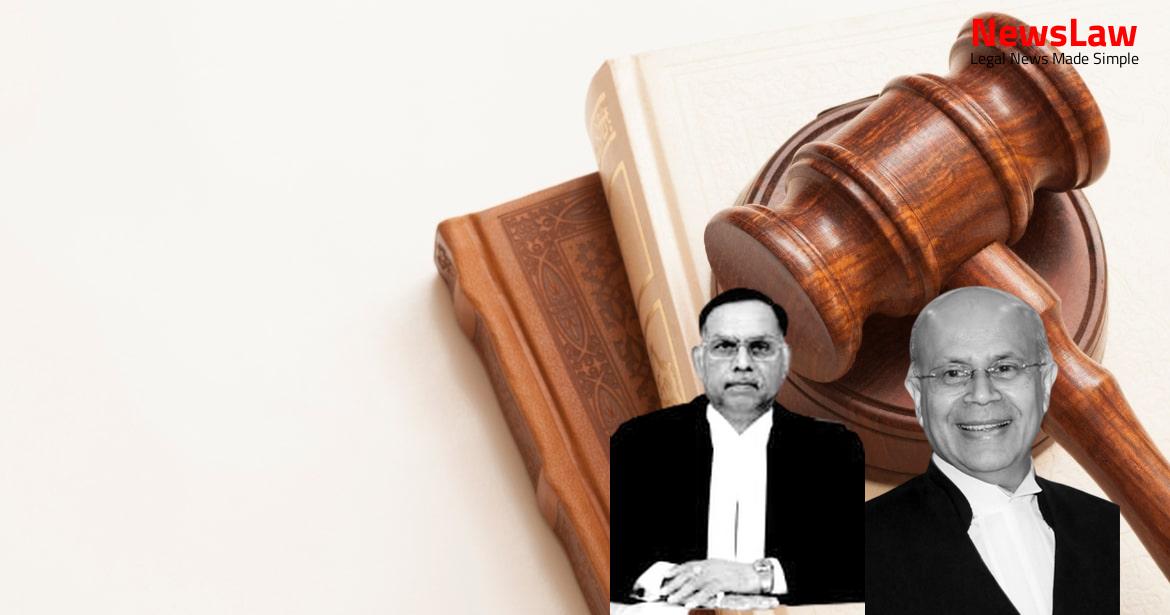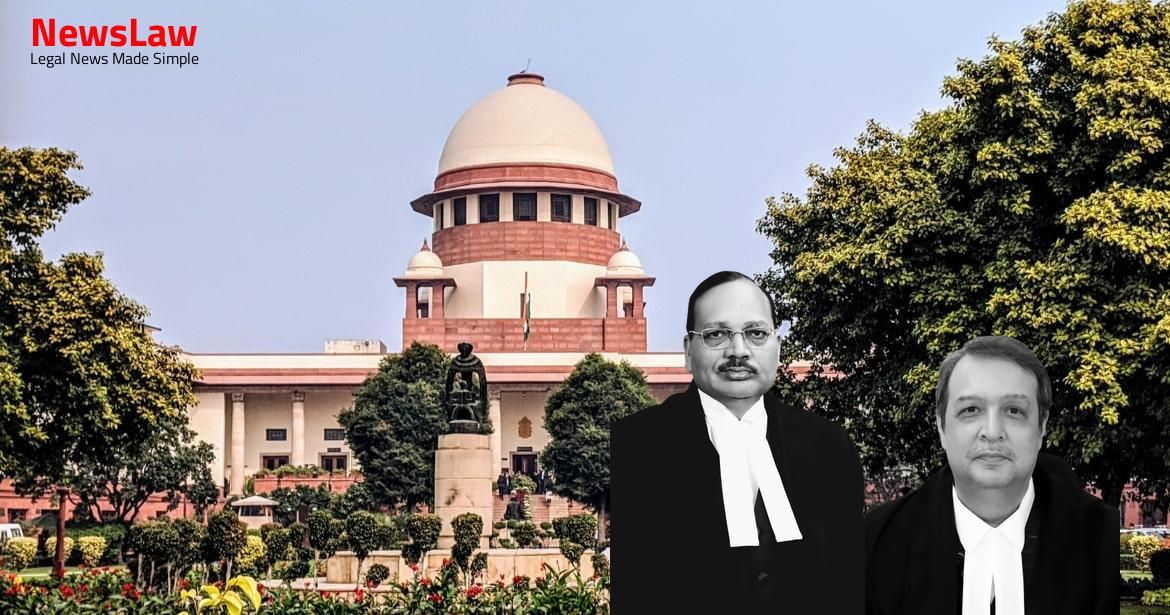Delve into a comprehensive legal analysis by the court regarding the equitable distribution of family pension in a recent case. The court’s judgment delves deep into the nuances of nomination rights, settlement deeds, and statutory provisions while emphasizing the importance of balancing the equities in such matters.
Facts
- The deceased Ram Chandra Nirola had three children from his second marriage.
- Appellant no.1 was the first wife of the deceased.
- The deceased executed a settlement deed on 30.06.2008 dividing his properties between his two wives before his retirement in 2009.
- Appellant no.1 was denied family pension as per the settlement deed.
- The denial of succession certificate under Section 372 of the Indian Succession Act, 1925 by the District Judge, East District, Gangtok was affirmed by the High Court.
Also Read: Expanding the Notional Extension Theory: A Legal Analysis
Arguments
- Mr. Manish Goswami, learned counsel for the appellants, argues that equitable distribution of the family pension between the two wives was a statutory right of appellant no.1 under Rule 40(6) of the Pension Rules.
- Reliance was placed on Vidhyadhari & Ors. vs Sukhrana Bai & Ors. (2008) 2 SCC 238 to support the submission that the nomination in favor of the respondent to the exclusion of the appellant was valid.
- The deceased solemnized his second marriage with respondent no.1 on 09.05.1987 when the Hindu Marriage Act was not in force in the State of Sikkim.
- Rule 27 of the 1963 Rules was cited and considered in the respective submissions.
Also Read: Analysis of Intent in Fatal Assault Case
Analysis
- Rule 40(6) does not give a statutory right to appellant no.1 for an equal share in family pension.
- The deceased did not nominate appellant no.1 for the family pension, as mentioned in the settlement deed.
- Rule 38 allows for nomination for death-cum-retirement gratuity only, not for family pension.
- The deceased wanted to prevent future disputes between his wives and their progeny by executing the settlement deed.
- The second marriage of the deceased with respondent no.1 does not invalidate her right to family pension.
- Appellant no.1 may have waived her right to family pension in favor of benefits received under the settlement deed.
- The Sikkim Rules on marriage registration do not apply unless it is asserted that the second marriage was solemnized under them.
- Family pension was not considered as part of the estate of the deceased.
- Debarring the appellant no.1 based on the settlement deed was not justified.
- The rule outlined does not impact the validity of marriages that were not solemnized under its provisions.
- The rule also does not directly or indirectly affect the validity of any other modes of contracting marriage.
- The deceased executed a settlement deed for his movable and immovable properties.
- The settlement deed was accepted and acted upon by the appellant no.1.
- Balancing the equities in case the settlement deed had not been executed.
Also Read: Assessment of Compensation in Disability Case
Decision
- The appeal has been dismissed by the court.
- The court finds no merit in the appeal.
- Decision of the court is final and not subject to review.
Case Title: TULSA DEVI NIROLA Vs. RADHA NIROLA (2020 INSC 270)
Case Number: C.A. No.-001835-001835 / 2020



